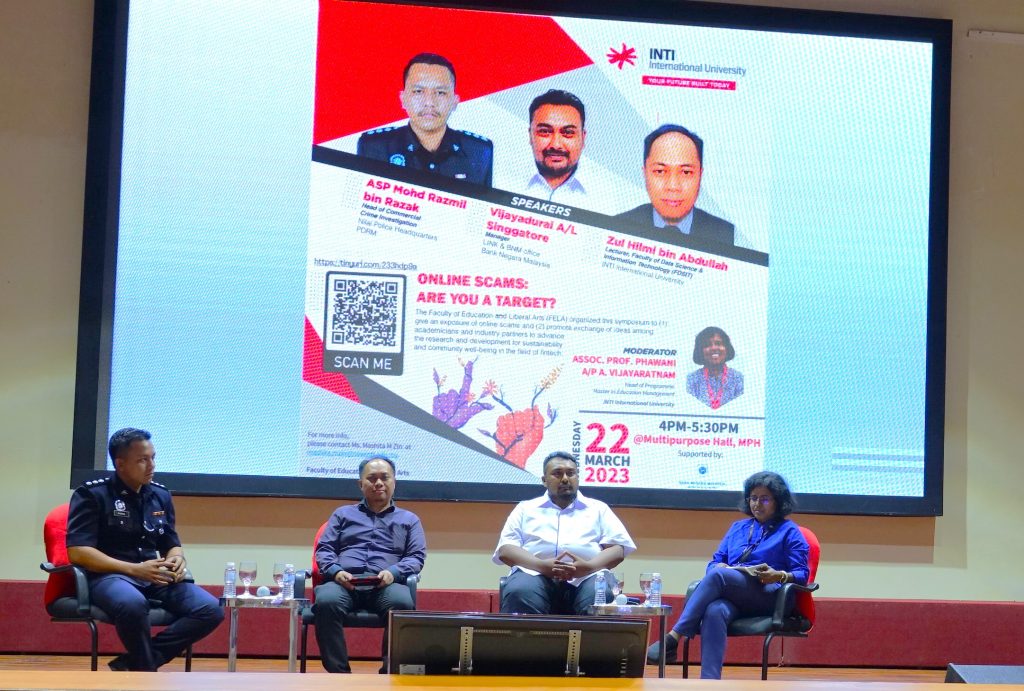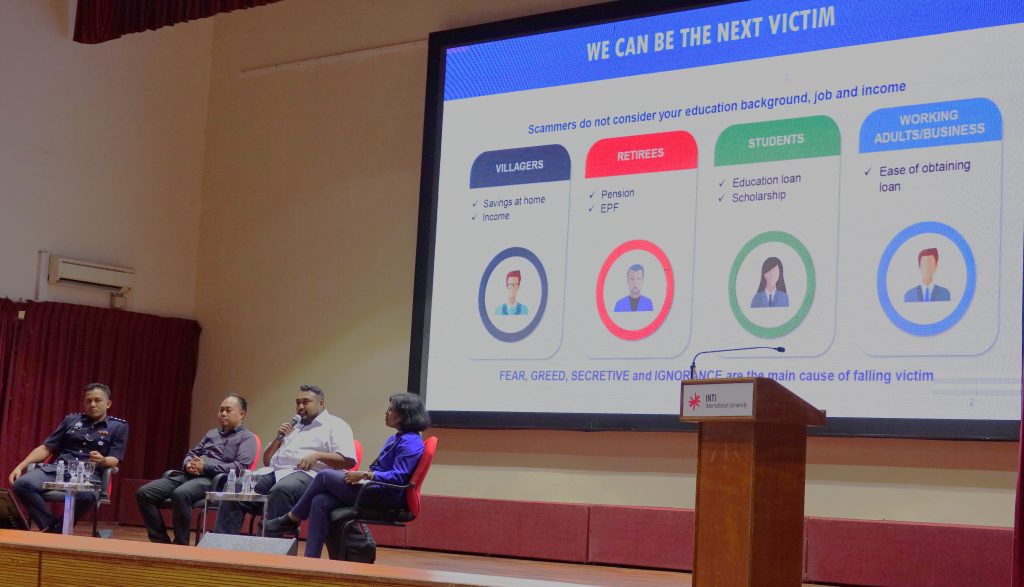By Asma Irdina
Pictures: Karthikesani Govindan
Online scams are a growing problem in Malaysia, with many people falling prey to scams such as phishing, fake websites, and investment scams. To tackle this situation, the symposium on Online Scams was recently held by INTI International University’s Faculty of Education and Liberal Arts (FELA) in collaboration with Bank Negara Malaysia and Royal Police Malaysia.

The event dived into the top strategies that one can use to safeguard oneself against online scams.
Mr. Vijayadurai Singgatore, Manager of LINK & BNM Office from Bank Negara Malaysia, emphasized the increasing prevalence of phone scams, where scammers impersonate government officials, bank officers or other authorities and deceive students into revealing their personal and banking information.
He highlighted the common ‘Macau scam’, where scammers pretend to be someone the student knows or has helped before and coerce them into transferring money to fake accounts.
Mr. Vijayadurai Singgatore added that the Bank Negara Malaysia also provides information on its website and through other channels to help people understand the risks and take appropriate precautions.

ASP Mohd Razmil bin Razak, Head of Commercial Crime Investigation from Nilai Police Headquarters urged students to always verify the identity of the caller and to never give out personal information over the phone.
“I was also a student back then, and I hope all of you can be aware of unsolicited calls and to hang up immediately if you sense anything suspicious.”

Throughout the symposium, Assoc. Prof. Phawani encouraged students to ask questions and share their own experiences with online scams. The lively discussion highlighted the need for continued education and awareness around online security and the risks posed by scammers.
A symposium on online scams is important for everyone as a way to raise awareness, prevent victimization, protect personal information, develop professional skills, and network with experts in the field.




